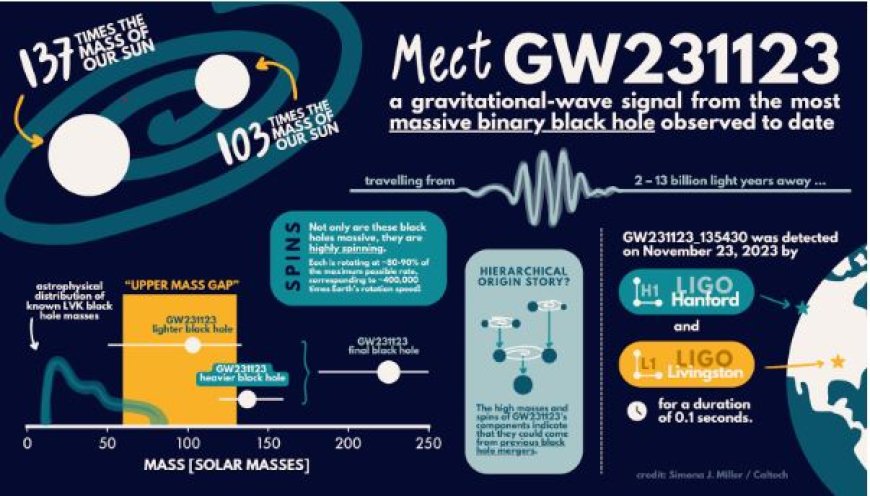Breakthrough in Black Hole Research Led by Portsmouth Astrophysicist
Dr. Charlie Hoy, a Research Fellow at the University of Portsmouth, played a key role in deciphering data related to a recent breakthrough in black hole mergers. This discovery challenges existing theories on black hole formation and provides valuable insights into the universe's mysteries.

Dr Charlie Hoy, a Research Fellow at the University of Portsmouth's Institute of Cosmology and Gravitation and a member of LIGO Scientific Collaboration, played a key role in decoding data related to black holes. Dr Hoy highlighted the challenge of studying rapidly spinning black holes, which defy conventional understanding of their formation.
Professor Mark Hannam from Cardiff University, also part of LIGO, emphasized the uniqueness of the observed massive black hole binary and its implications for black hole formation theories.
Black holes, though invisible, generate gravitational waves when they merge, which are detected by instruments like LIGO, Virgo, and KAGRA. The recent observing run, starting in May 2023, promises new insights into cosmic phenomena like black hole mergers.
The University of Portsmouth's Institute of Cosmology and Gravitation is a hub of cutting-edge research, with a focus on unraveling mysteries of the universe, from the Big Bang to gravitational waves. The institute's exceptional contributions to projects like Euclid, LISA, LIGO, and DESI underscore its global impact.
According to the source: Mirage News.
What's Your Reaction?
 Like
0
Like
0
 Dislike
0
Dislike
0
 Love
0
Love
0
 Funny
0
Funny
0
 Angry
0
Angry
0
 Sad
0
Sad
0
 Wow
0
Wow
0



















































































































































































